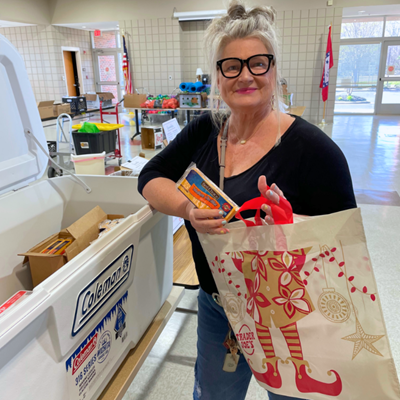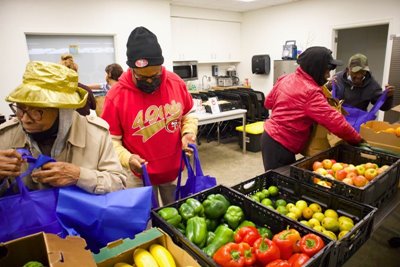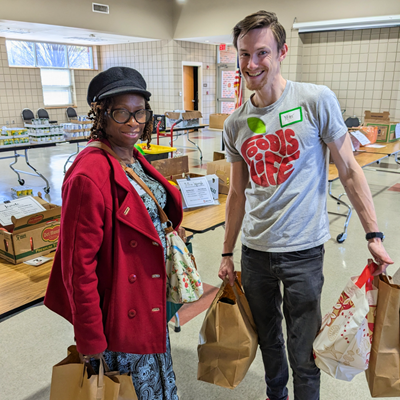A prescription for better rural nutrition
Good Food Rx program serves rural seniors
In 2019, Mellie Boagni Bridewell noticed a worrying trend among the seniors in her community. As CEO and founder of the Arkansas Rural Health Partnership (ARHP), a nonprofit health care network in the southern part of the state, she has spent most of her career searching for outside-the-box solutions to rural health challenges. When ARHP’s members started screening more for social determinants of health (SDOH) as part of their chronic disease management program, food insecurity emerged as a top concern.“We wanted to address chronic disease, and a lot of what we were seeing in these patients was stressors due to lack of basic needs,” says Bridewell, who is a 2019 graduate of NRHA’s Rural Health Fellows program. “We realized we were feeding people who were basically 90 pounds.”
 |
“I don’t know how many times I’ve been to the grocery store in Mississippi and seen someone elderly from our community wandering around the parking lot because they can’t find their car,” Bridwell says. “In the city seniors have an easier time – they can have groceries delivered or go pick it up, but that’s not the case in rural communities.”
| "We wanted to address chronic disease, and a lot of what we were seeing in these patients was stressors due to lack of basic needs." |
| – Mellie Boagni Bridewell |
Bridewell says the program has been well received by the 60 families it serves, particularly since many rural seniors are living on their own and have limited contact with people outside their home. Betty Davis receives meals through Good Food Rx, and she says she is grateful because transportation is difficult, and the program allows her to have nourishment delivered.
 |
When it comes to the challenges facing elderly rural residents, Bridewell has firsthand experience. Her parents are in their late 80s and often have trouble getting food when they need it, which impacts their health outcomes and quality of life. Because people are living longer, Bridewell says health care providers need to look at ways not only to keep them healthy but help them live better as they age – and making sure they have readily available meals is one way to do that.
| "The program takes a burden off of me having to worry about food because transportation is difficult." |
| – Pauletta Payne, Good Food Rx patient |
Going forward, Bridewell hopes to expand the program’s offerings, as well as track its impact so she can show insurers that food makes effective medicine. ARHP is also completing a toolkit with SDOH screening tools and other resources for organizations looking to start similar programs. Bridewell’s main piece of advice is not to reinvent the wheel but rather look for opportunities to partner with other organizations that are already preparing large quantities of healthy food, such as local hospitals. She also looks forward to continuing to get to know the seniors in her community – and give them a fresh, healthy meal while she’s at it.
 |
